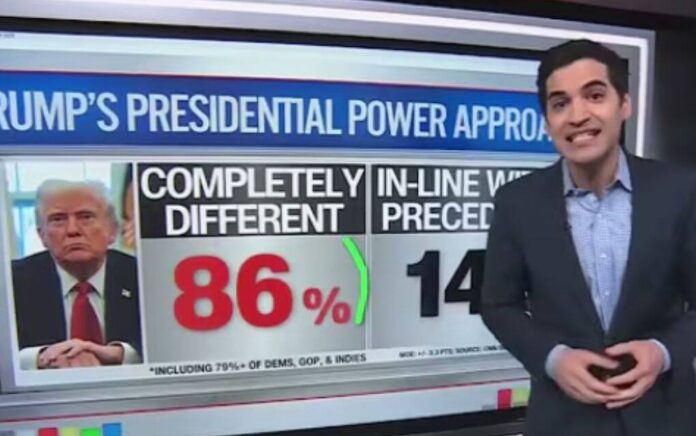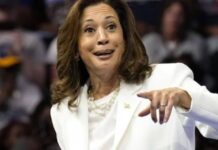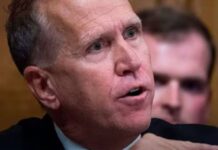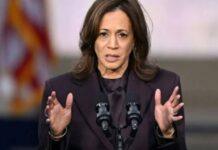
Democrats are in trouble. Even CNN is beginning to realize that.
And CNN was stunned in silence after what this poll revealed about the Democrat Party.
Democrats Struggle to Regain Economic Trust
In a surprising twist, CNN analyst Harry Enten expressed disbelief on Monday as fresh polling data revealed the Democratic Party’s persistent lag behind Republicans on economic issues. Despite market turbulence, recession concerns, and President Trump’s controversial tariff push, Democrats have failed to seize an advantage on what voters consistently rank as their top priority.
“You’d expect that Democrats would have this massive lead on the economy — it ain’t so! It ain’t so!” Enten exclaimed, unveiling CNN’s latest May survey. The numbers painted a stark picture: Republicans hold an eight-point lead over Democrats when voters were asked which party was “closer to your economic views.”
This gap, while slightly narrower than the 11-point Republican advantage in a November 2023 CNN poll, remains a stubborn hurdle for Democrats. “How is that possible, Democrats!?” Enten asked.
The CNN data, still within the margin of error of prior surveys, isn’t an outlier. Other polls, like the recent Reuters/Ipsos survey, show Republicans not just maintaining but expanding their edge.
In May 2024, before Trump’s re-election, Republicans led by nine points on which party had a “better economic plan.” Fast forward to May 2025, and that lead has grown to 12 points.
“This is after months of supposed economic uncertainty in which the stock market’s been going bonkers, in which tariff wars that Americans are against have been going on,” Enten noted. “And yet, despite all of that, the Democrats are down by 12 points on the economy.”
Perhaps most telling is the Democrats’ erosion as the perceived champion of the middle class. Enten highlighted a striking shift: “In our latest CNN poll, among registered voters, ‘Which is the party of the middle class?’ — It is tied!”
Historically, Democrats dominated this question, boasting a 23-point lead in 1989, a 17-point edge in 2016, and a four-point advantage in 2022. Now, that lead has vanished.
“This, I think, speaks to Democratic ills more than anything else,” Enten said. “Donald Trump and the Republican Party have taken that mantle away … Republicans have completely closed the gap.”
The Democrats’ disconnect with working-class voters runs deeper than polling numbers suggest. Over recent years, the party’s focus on social issues, particularly around transgenderism and other progressive cultural priorities, has alienated many in the working class.
Policies emphasizing gender identity, pronoun usage, and related debates have often overshadowed bread-and-butter concerns like job security, wages, and affordable living.
For many blue-collar workers, these cultural shifts feel distant from their daily struggles, creating a perception that Democrats prioritize woke agendas over economic stability.
This shift has been especially pronounced among union households and rural voters, once reliable Democratic strongholds. The party’s vocal advocacy for progressive social reforms, while resonant with urban and younger demographics, has left working-class communities feeling neglected.
As Democrats doubled down on these issues, Republicans capitalized by framing themselves as the party of practical economic solutions, appealing to voters frustrated by rising costs and job market uncertainties. The result is a growing chasm between Democrats and the very voters they once championed.
To regain ground, Democrats face a steep challenge: balancing their commitment to radical Leftist agendas with a renewed focus on economic policies that resonate with the working class.
Without addressing this divide, they risk further ceding ground to Republicans, who have deftly positioned themselves as the voice of the middle class. As Enten’s data shows, the economic trust gap is not just a statistic—it’s a warning sign of a deeper realignment in American politics.
Stay tuned to The Federalist Wire.



















